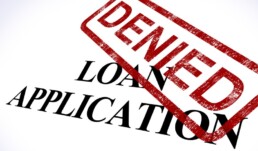Is it Better to Pay Off Your Mortgage or Invest?
When it comes down to it, this is not a simple or straightforward question.
There are so many variables that you really need to whip out a calculator, talk to your CPA, visit a financial planner and/or retirement specialist, and so on and so forth.
It also depends on your mortgage rate, your tax bracket, how much you owe on your mortgage, what type of mortgage you’ve got, the term, how long it will take to pay it off, etc.
Does your employer provide a 401k match? Is your money better off in another type of retirement account? Do you have other high-APR debt? How much do you need to set aside for a rainy day?
Mortgages have a lot of desirable qualities that make them the best debt to carry. For example, very few loans come with extremely low fixed interest rates that are tax deductible and amortized over a long period of time.
So if there was ever a loan to hold onto, a mortgage would be it, especially with rates where they’re at now.
If we assume inflation picks up in coming years, your existing mortgage becomes even more attractive to hang onto, as opposed to paying down, seeing that the debt will be paid back in cheaper dollars from the future.
If rates happen to go down, you have the option to refinance to a lower rate, which also provides flexibility. And if you invest money early on instead of paying down your mortgage, your gains can be exponentially better.
Finally, there’s also the emotional element. Some folks like the idea of being debt-free, for better or worse, financially. Not everyone likes to invest in complicated securities or even seemingly benign blue chip stocks, so their goal might be to eliminate the debt overhang as quickly as possible.
In either case, it’s always smart to set aside some readily accessible funds in the case of an emergency, or even to replace your roof or handle some other household repairs.
The key is really finding a balance. There’s no rule for how much you need to pay other than your payment due. You can make an extra payment here and there or look into biweekly mortgage payments, or just pay on schedule and spread your money around as needed/desired.
Here are some pros of both options:
Pros of Paying Off the Mortgage
- Pay less interest
- Own your home free and clear faster
- Get rid of mortgage insurance
- Gain more home equity
- If rates fall and you refinance, lower LTV = lower interest rate
- You can sell your home more easily
- Less risk of losing money in the stock market or elsewhere
- Less work
- No debt at retirement
- Peace of mind
Pros of Investing Instead
- Mortgage rates will never be this low again
- Long-term low fixed rate a great deal
- Mortgage interest deductible
- Money remains liquid
- Investment gains can exceed return on mortgage
- Investing early can make for greater long-term returns
- Ability to diversify your investments
- Contributions to retirement account may be more beneficial
- Inflation makes mortgage balance cheaper in the future
- Home could lose value
- Avoid throwing good money after bad if underwater on your mortgage
If you're interested in refinancing or applying for a new mortgage, contact my office at 702.331.8185.
What Credit Score Do You Need to Qualify for a Mortgage?
If you’re thinking about purchasing a new home or refinancing your existing mortgage, you should know that your credit score is hugely important.
Banks and mortgage lenders use your credit score(s) to evaluate your creditworthiness, which translates to a higher or lower mortgage interest rate, and even determines eligibility.
Which Credit Score Do Mortgage Lenders Use?
First and foremost, you might be wondering which credit score mortgage lenders use, seeing that there’s no sense focusing on something they won’t actually look at to determine your creditworthiness.
The short answer is FICO scores, which are the industry standard and relied upon by just about everyone.
There are three FICO scores you need to be concerned with, including one from Equifax, one from Experian, and one from TransUnion, which are the three main credit bureaus.
Know Your Credit Scores Long Before Applying for a Mortgage
Before you actually head out to get a mortgage, it’s good practice to view your credit scores long before you apply. I’m talking several months in advance because any necessary credit score changes/improvements take time.
For example, any mistakes (or legitimate issues) holding your credit score down may take months to get cleared up. And you won’t want to leave anything to chance. Yes, the credit bureaus are bureaucratic, so nothing happens all that quickly.
Also, be sure to go with a service that allows you to see all 3 credit scores, as mortgage lenders typically pull a tri-merge credit report, which includes credit scores from all three bureaus.
The bureaus each report information a little differently, so knowing just one score won’t do you (or your lender) much good.
As far as lenders are concerned, it basically allows them to triple-check your credit before making the decision to hand over a large sum of money. They use the mid-score for pricing/qualification, so it’s imperative that all 3 credit scores are in tip-top shape.
For example, if your credit scores are 650, 680, and 720, a mortgage lender would use the 680 score, which is a decent but below-average credit score.
Lower Credit Score = Higher Mortgage Rate
Put simply, a lower credit score will lead to a higher mortgage rate, and vice versa. This all has to do with risk. The lower your credit score, the higher the chance you’ll default on your mortgage, at least that’s what the statistics say.
So if your credit score is too low, you probably won’t even get approved for a mortgage. Lenders simply won’t want your business. It’s just that risky.
Lately, banks and lenders have become even more stringent, requiring higher credit scores than they have in the past.
Credit Score Below 620 Considered Subprime
As far as conventional mortgage loans go, a credit score below 620 is typically considered subprime, meaning you’ll have a difficult time qualifying for a mortgage, and if you do, you’ll receive a subprime mortgage rate.
In general, you want a credit score above 720 to avoid any negative pricing adjustments, but a 760 credit score might be the new rule if you want the best possible terms and lowest rates. If you’ve got excellent credit, you can even get a reduced mortgage rate.
In summary, your credit score is probably the one thing you have complete control of, whereas things like job, income, and assets can be at the mercy of external forces. So do your best to strive for perfection in order to get the best deal on your mortgage.
Some Useful Credit Tips for Those Shopping for a Mortgage
- Credit scores are the single most important factor in determining your mortgage rate
- Aim for a 760+ credit score to get the best pricing and to avoid scrutiny
- Credit scores aren’t everything, what’s on your credit report matters as well!
- Know the contents of your credit report and what your scores are long before your lender does
- Any mistakes or missteps can be corrected, but take time, often several months!
- The FHA now requires a minimum credit score of 500, or 580 if you put less than 10% down
- Conventional loans generally require a minimum credit score of 620
- Credit scores below 620 are considered subprime and will be priced much higher
- Lenders pull all three of your credit scores and use the median score for qualification
- Low credit scores can also disqualify you for certain loan programs and/or limit your options
- Don’t mess with your credit before or during the loan application process!
Three Documents to Bring When Applying for a Conventional Loan
When you are planning to buy a home and need a mortgage, a conventional loan is one of the most common types of financing available. Make sure that you bring all of the necessary documentation when you apply for the loan.
Three Documents to Bring When Applying for a Conventional Loan
When you are considering the purchase of a home and are not paying cash for it, you will need a means of financing the purchase. Mortgage loans that are based on conventional loans in Las Vegas are a common way of financing the purchase of a house. When you head in to apply for the conventional loan, make sure that you bring these three pieces of documentation.
Proof of Income
You will need to bring proof of your income. This will include a pay stub and two of your most recent federal tax returns. If you work at more than one job, bring in a pay stub from each. If there is more than one adult applying for the loan, both people will need to bring these documents. These documents provide proof that your earnings will be enough to make the loan payments.
Social Security Card
Your social security number is used to run a credit check when you are applying for a mortgage backed by a conventional loan. A higher credit score means that you are a lower risk for defaulting. The higher your credit score, the lower the interest rate will be on your conventional loan.
Proof of Insurance
When you are applying for a conventional loan for the purchase of a home, the actual house is the collateral on the loan. In order to receive the mortgage, you are responsible for insuring the house. You will need to bring proof of homeowner's insurance from a legitimate insurance company. The proof will need to be on letterhead and contain the contact information of the agent offering the insurance policy. The insurance of the structure will ensure that the loan can be paid off in case of a catastrophic event such as a fire.
Looking for a seasoned mortgage professional?
Derek Parent and his team of professionals have the experience and passion you need to make purchasing your next home as stress-free as possible. We've had the opportunity to work with a wide diversity of clients, so we're ready for any situation!
Why the Parent Team Made the Move to USA Mortgage
As a seasoned mortgage professional, it is extremely important to me that I leave a lasting impression on my community. My mindset is that every day is an opportunity to grow—not only in my career, but also in my own development. It has always been my honor to be a stepping stone in others’ lives on the road to accomplishing their goals, and my career has enabled me to do that in a big way. With almost twenty years of experience, I have had the opportunity to work with an array of clients, including first-time homebuyers, high net-worth individuals and local heroes such as: our beloved veterans, police, firefighters, teachers and medical workers. Being that no one transaction is the same, the exposure to such a vast assortment of scenarios has given me a level expertise that allows me to handle any situation.
In such a dynamic industry, it is an obvious understanding that an open and creative mind will generally succeed; so personally, I believe that my duty is to always keep an adaptive perspective. Because of that, I have made it a point to work with some of the greatest minds in the industry, including David Silverman, Rick Ruby, Todd Scrima and Josh Sigma. Influences such as theirs’ have helped pave my career path and push me to create one of the top mortgage origination teams in the country.
With that being said, I personally have made it my goal to pay it forward by serving my clients and helping them realize their dreams. So less than a month ago, the Parent Team made a ground-breaking decision to relocate to USA Mortgage. To say the least, it was not an easy choice. Personally, I grew to admire and truly respect NFM Lending’s CEO Mr. David Silverman and his humble approach to leadership. In the amount of time that I was there, I can honestly say that I not only became a better loan originator, but I also grew as a leader. Coincidentally, that is the reason that my team and I made the decision to start fresh with USA Mortgage.
My career has always been about creating lifelong relationships with my clients and referral partners. However, I quickly realized how unique the Las Vegas market was when I began having to turn away clients to other industry professionals. Not only was that not good for business, it prevented me from doing what I love. It is evident that my number one motivation is to help others, and that is exactly what this company allows me to do. Each region of the country demands very different things when it comes to real estate, and based on location, demographic and the overall demand of the community, specific companies have the ability to be very impactful in targeted areas. Las Vegas, Nevada—as a whole—is somewhat of a niche market, and it requires mortgage options that are tailored to its residents. As a nationwide top twenty-five company, it is obvious that USA Mortgage understands this. They are built on a foundation that boasts remarkable leadership and innovation, and they are able to provide the loan products that my team and I need to be able to serve our community to the fullest extent.
I am lucky enough to say that I have had many great experiences throughout my career, and each step has helped me grow immensely. So personally, it is difficult to express the full level of my excitement to start this new venture.
P.S. We are moving offices, too. Come check out our new location at: 5598 Fort Apache, Las Vegas, Nevada, 89148.
Derek Parent
What It Takes to Buy a Home
Understanding the many facets of buying a home allows you to avoid the mistakes commonly made by new homeowners.
Necessary Steps to Purchasing a Home
There are several options you can choose from when buying a new home. Along with your usual neighborhood house, condos and high rises can also be great options for your new home. Whatever your preference, purchasing a new home for you and your family may seem like a daunting process that's practically impossible to do right. It's certainly true that it's a lengthy process that can be tricky to fully comprehend. However, knowing more about the steps involved in this process and the order in which they occur will help dramatically with purchasing a new home.
Check Credit and Identify Affordable Payment Options
The first thing you need to do is check your credit score. You can receive one free copy each year. People with higher scores have the ability to receive better loans. It's essential that you ascertain exactly how much you can afford for monthly payments. An online mortgage calculator will assist with this. Additional costs may include the initial down payments, closing costs, and any other fees. Down payments can range anywhere from 0 percent to 20 percent depending on your loan, so make sure to check all your options for a home loan in Las Vegas.
Work With the Correct Lender and Real Estate Agent While Searching for a Home
The next thing you'll be required to do is locate the right lender and real estate agent for the job. The Better Business Bureau should have information on any lender or agent you're considering. Ask a lot of questions and make sure that you're comfortable before selecting a lender or agent. When you're searching for the right home, simply make a checklist of your utmost desires for what a home should have and set a budget. Find a home that fits as much of your criteria as possible at the price you can afford.
Make an Offer Before Selecting Mortgage and Closing
Once you've found the right home, it's time to make an offer. Start around 5 percent below the asking price. Negotiations often occur with these offers in order for both parties to be satisfied. You'll also need to obtain the right mortgage for your specific situation. After obtaining the mortgage, inspect the home and set a closing date. All that's left is for you to move in.
Looking for a seasoned mortgage professional?
The Derek Parent Team contains experienced and passionate professionals to help you with your home buying needs. We've had the opportunity to work with a wide diversity of clients - ranging from first-time homebuyers to high net-worth individuals to local heroes such as veterans, police officers, and firefighters. Contact us today!
2 Ways to Build Passive Income Streams in Different Markets
It's wise to build passive income streams in the young adult years and allow them to grow. Before long, you'll be earning significant money from your previous work.
Two Easy Ways to Build Significant Passive Income
Passive income is great because it's a way to earn income without putting in a lot of work on a consistent basis. Technically, passive income works because a person does an amount of work in the beginning, but the cash flow is reoccurring and provides financial health. This is especially beneficial for the older generations as they continue to age and desire to preserve their energy.
Invest in Real Estate: Condos, High Rises, Homes
For some people, the thought of owning multiple properties may sound daunting and almost impossible. However, there are many ways to earn money as a real estate investor. One of these ways involves rentals. You can purchase a home, condo, or high rise by researching various investment property financing options. Don't be deterred by the idea just because of the finances. When you prepare a house to put on the market as a rental, you'll be able to earn a lot of money on a monthly basis. A few years of rental income can easily pay off an entire mortgage without your help and the rest becomes profit.
Books, Music and Other Copyrighted Material
Books are great forms of passive income for building wealth. An author spends a significant amount of time writing a book. Once it's published and available for sale, the book will sell over and over. The same concept applies to music. The percentage that's paid to the creator is called a royalty. With the right marketing plan and a wide audience, anyone can experience royalty checks in the hundreds of thousands of dollars. There are also many celebrities who make a lot of money from their book tours and book signings. If you don't consider yourself a good writer, but you have a story to tell, hire a ghostwriter. They'll create the content and you'll be able to eloquently share the story with the world.
Finances and the Future
Passive income streams eliminate the process of exchanging time for money. When you free up your time and can still earn lots of money, this is a dream that most people long to experience. In the meantime, be intentional about creating passive income streams and you'll experience financial freedom in no time.
Preparing in Advance for Your Home Purchase
The home buying process is a fulfilling and gratifying one that requires financial acumen and discipline.
Preparing for Financial Planning and Home Ownership
Purchasing a home is a big deal. Whether you are looking to buy a high rise, condo, or house in Las Vegas, it takes a lot of dedication and patience to turn a dream of home buying into a reality. Once some people hit a certain age, they automatically assume it's time to purchase a house. While it's good to own a home, it's wise to be fully prepared to own that home. This mainly depends on what your financial situation is like and how well you can be disciplined with what you have.
Financial Status
Your finances play a major role in this process. While it would be ideal, most people don't have the money to purchase their home with cash. In this case, many people get loans to cover the mortgage. There are so many options to choose from such as first-time home buyer options and lending mortgage options. No matter what route you choose, it's best to have the money to make the down payment on the home. Some programs will allow you to only have 3-5% down to pay for a home. Many finance educators and experts encourage 20% down payment. You'll also want to consider the expenses outside of the home purchase such as furnishings, repairs, closing costs and relocation fees. If you prepare for a home purchase the right way, you won't need to deplete your savings to make it happen.
Discipline
It takes a high level of financial discipline to purchase a home. When the mortgage lenders take a look at your credit score, they want to know that your chances of paying back the loan are very high. This boils down to how you handle money and what your money mindset is like. If you're mindful and intentional about your savings and investment accounts, you'll be in great shape to experience the beauty of being a homeowner.
Consistency
It's one thing to gain all the information. It's another thing to make sure you remain consistent with the information you gain. If you make those baby steps with building discipline and apply those lessons you learn about handling your finances, you'll be in a dynamic position to purchase a home and handle all that comes along with it.
Derek Parent Team
Looking for a new condo or high rise to be your Las Vegas home? Contact us today! Derek is the only person in Las Vegas that offers down payment assistance and mortgage lending towards the purchase of high rise condos in Las Vegas.
Buying a Home When Your Partner Has Bad Credit
You pay all your bills on time and you work hard to earn more — so you can save more. Your credit score reflects your savvy money management skills, and you can proudly boast that you’re a member of the 730-and-up club.
Your partner? Not so much. Whether due to past actions or financial mistakes they’re currently working to correct, your love’s credit score is not something to write home about.
What’s a committed couple ready to settle down into a place of their own to do?
Before giving up on dreams of home ownership, take a look at the following options and determine what path makes the most sense for the two of you.
Ask why your partner’s credit score is low
Before trying to beg and plead with a lender to just give you the loan, ask why your partner’s credit score is less than stellar. If in the end you can chalk a bad credit score up to a mountain of consumer debt, you both might need to take a step back.
Buying a home isn’t a requirement — it’s an important decision, but it’s a big one — and trying to force the situation while one of you faces dire financial straits is a recipe for monetary disaster.
Step one: develop a debt repayment plan. Step two: look into home ownership later, when you each carry smaller liabilities.
If your partner has “bad” credit due to long-past transgressions, you each may benefit by taking action to improve their score before applying for a home loan. Start with these tips to boost a credit score (and score a better interest rate on that mortgage):
- Check credit reports, look for mistakes, and correct errors if necessary
- Make all future payments on time and in full
- Keep your credit utilization ratio low (which means don’t run up a balance of $499 on a card with a $500 credit limit, even if you pay off that balance in full every month!)
- Leave old accounts open, but don’t use them
Make the mortgage your own
Ready to buy a house now? It may make more sense to apply for a loan on your own instead of going in jointly with your partner.
Keep in mind that lenders look at your entire financial picture to determine whether you qualify. That means your own income, assets, and credit-worthiness need to meet the lender’s requirements without any help from other sources.
Before running down this road, ensure the monthly payments and other costs associated with home ownership are ones you can shoulder with your income alone.
While no one wants to think about worst-case scenarios, it’s your name on the dotted line — and you’re the one responsible for paying the mortgage if the two of you ever split up.
Plead your case
Although mortgage lenders may seem like faceless entities incapable of deviating from their set processes, there is room for you to explain your situation and provide all the facts.
If you can show your partner’s bad credit is due to factors that will not impact your reasonable ability to repay the home loan, the lender may approve a joint application despite a low score on one end.
Ask if you can write a letter of explanation for a low credit score. If the lender says it will consider your explanation, provide as much documentation to back up your reasons as possible. Consider including explanations and documents to show how, together, you and your love can reasonably make your monthly payments on your potential loan.
Consider a co-signer
If none of the above solutions works for your situation, you can consider asking someone to co-sign the home loan with you. Another person with a good credit score, sufficient income, and low debt-to-income ratio can help you qualify for the mortgage you want.
But you shouldn’t consider this option lightly. That other person will be financially responsible for the loan if you default.
To put it simply, co-signing can come with a lot of baggage. If co-signing makes sense for you, it’s an option — though you might want to think about other options first.
Love is blind, but mortgage lenders may not be so forgiving (or, well, blind to the realities of your financial situation). That doesn’t mean buying a home is out of the question, but do your research first.
If you can find a workable solution, take action and make your home-owning dreams a reality.
And if you both need to take some time to repair that bad credit score? Do that, and rest easier knowing your financial ducks will be in a row before you take on a mortgage.
4 Misconceptions about Real Estate & Capital Gains Tax
Walking away with a profit on your home sale is an exciting proposition. But there’s one thing that can suck the excitement right out of such a positive financial move:the threat of taxes on your investment gain — otherwise known as the dreaded capital gains tax.
Luckily, the Taxpayer Relief Act of 1997 helps many homeowners hold on to the gains earned on their home sale. Pre-1997, homeowners could only use a once-in-a-lifetime tax exemption of up to $125,000 on a home sale, or they would need to roll their earnings into the purchase of another home. Today the rules aren’t quite so stringent. As with all tax-related things, there are plenty of exceptions and loopholes to be aware of. So let’s break down a few misconceptions about capital gains and home sales.
Tax treatment: House flippers vs. homeowners
One common misconception when it comes to capital gains tax on real estate is that all home sales are treated equally. Unfortunately for house flippers, that’s simply not the case. To receive the best tax treatment on your gains, you must have used the home as your primary residence for two out of the five years preceding the sale. If the home was not used as a primary residence for the required time, profit on the sale is taxed as capital gains. However, for those who flip houses on an ongoing basis, homes are considered inventory instead of capital assets, and the profit earned is taxed as income. Long-term capital gains tax is 15% for most people, 20% for those in the top tax brackets. However, if the gains are taxed as income, rates could range from 10% to 39.6% depending on the rest of your income. In addition, house flippers aren’t allowed to simply avoid the tax by rolling profits over into their next home purchase.
Exemption limits: Filing married vs. single
While the Taxpayer Relief Act did away with the once-in-a-lifetime tax exemption of $125,000, exemption limits haven’t completely fallen by the wayside. Now you can pocket up to $500,000 of each home sale profit tax-free if you’re married, or up to $250,000 if you’re single. But for some newly married couples, claiming this exemption can be a little tricky. If one person owned the house for the past two years, but their partner wasn’t added to the title until, say, the last two months, that’s OK. However, both parties must have lived in the residence for two years prior to the sale — even if only one was on the title before they were married. In addition, if one person sold a previous home within the last two years and cashed in on an exemption, the couple will have to wait until they are both out of that two-year window before pocketing any gains from their shared home.
Type of home: Primary residence vs. vacation home or rental property
If you aren’t flipping homes, but you do have a second home or a rental property you’d like to sell after living there for the required two years, it won’t be treated as a primary residence for tax purposes. Second homes and rental homes no longer receive the same tax shelter they did before a 2008 shift in the tax code — even if the home becomes your primary residence for a time. Instead, when tax time comes around, you will owe a prorated amount based on the number of years the property was rented out or used as a second home after 2008. If, for instance, you used your vacation home as your primary residence for five years starting in 2010, but you used it as a vacation home for 15 years before that, only 10% of the gains would be taxed: The two years post-2008 when it was used as a vacation home equals 10% of the total 20 years of homeownership. The rest of the profit wouldn’t be taxed as long as it fell within the exemption limits.
Profit: Large sale price vs. small sale price
Another common misconception is that the more a home sells for, the larger the tax bill will be. However, for tax purposes, what you owe doesn’t depend on the sale price — it’s based on how much profit you make from the sale. In fact, you could sell your home for $5 million and not owe a penny in taxes — as long as you didn’t make more than the allowed exemption amount on the sale.
Another important thing to note: Capital gains tax on real estate isn’t necessarily an all-or-nothing proposition. If you’re nearing the cap on exemptions, you could still qualify for a partial exemption — just be sure to consult a tax professional before you make any big moves.
The Truth About Bi-Weekly Mortgage Payment Plans
Traditionally, your mortgage payment is a monthly cost. You submit your payment once a month to the mortgage company, and your money is applied to principal, interest, and escrow. But many mortgage lenders also offer biweekly mortgage payment plans that allow you to pay in installments every two weeks instead of every month. Biweekly payment plans sound simple and straightforward: You pay biweekly instead of monthly and reduce the balance on your loan faster. In theory, by using one of these plans, you pay less interest over time, build equity faster, and get rid of your mortgage ahead of schedule.
But before you sign up for a biweekly mortgage payment plan, it’s important to understand the pitfalls — and consider whether putting this concept to work on your own makes more sense.
Should I sign up for a lender-sponsored biweekly mortgage payment plan?
Unfortunately, these mortgage payment plans don’t always work as well as they claim. What actually happens is that you send in your biweekly payment to the company servicing the loan, and then they hold your payment until the second one arrives. Only after the company has the full monthly payment amount do they apply the money to your mortgage — which means as far as the mortgage company is concerned, you’re still making one payment per month.
In effect, this saves you nothing in interest because your funds are still only being applied as if you were making monthly payments. Worse still, some biweekly mortgage payment plans can actually ending up costing you more money, because the companies that offer these plans often charge additional fees to handle and deliver the payments for you.
If they don’t help pay off a mortgage early, why do these payment plans exist?
Considering the potential costs for the borrower, it may seem silly for lenders to even offer this plan. What’s the point if using the payment plan is no different than if you paid on the regular monthly schedule? Consider this: Most lenders who originate loans don’t actually service those loans. A third party handles the payment and the processing. But that doesn’t mean you can’t make a plan to pay down your mortgage loan ahead of schedule. You just don’t need to set it up through a lender-originated plan.
How can I pay off my mortgage early on my own?
There’s nothing wrong with the idea of paying extra on your mortgage and accelerating the rate at which you pay off the loan. You can make extra payments at any time, and you can do so in a variety of ways. Consider adding a little more to each monthly payment you make to help pay off the mortgage early. If you know you have an extra $100 in your budget each month, tack that on to your payment. For example, on a $100,000 loan (assume a 30-year fixed mortgage and 4% interest), paying an extra $100 a month can cut approximately 8.5 years off the life of the loan — and save $22,463.76 in interest. That’s some serious cash.
Another option? Create your own biweekly payment plan. By skipping the third-party processing (and the fee they add on for doing so), you’ll end up making an extra payment each year that you wouldn’t make if you paid monthly. You can also continue to pay monthly but make one extra mortgage payment at some point during the year to get the same result. Anytime you have extra money on hand — from a tax return, bonus from work, or gift — you can apply these funds to your mortgage too.
Just be sure that any extra payments you make are applied to the principal of your loan, not just the interest. This ensures you’ll actually receive the full financial benefit of paying extra toward your mortgage and be on track to pay off the loan early. You’ll also want to ensure that the terms of your mortgage will not leave you with a prepayment penalty should you pay extra or early.









